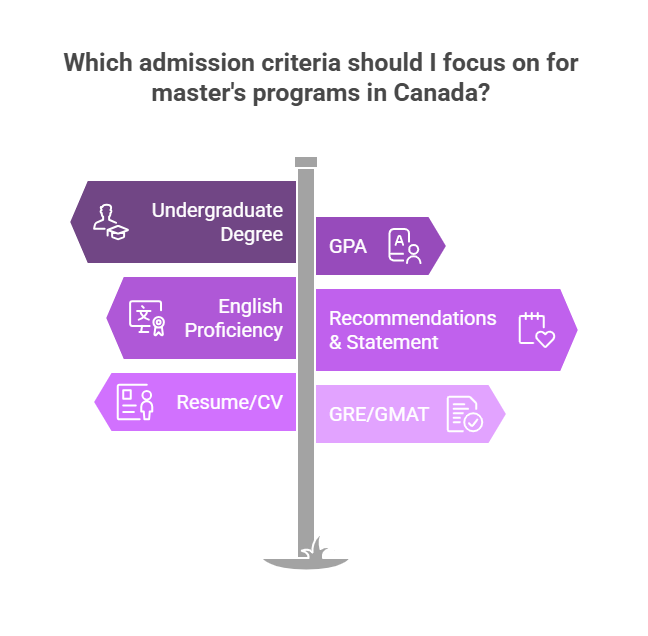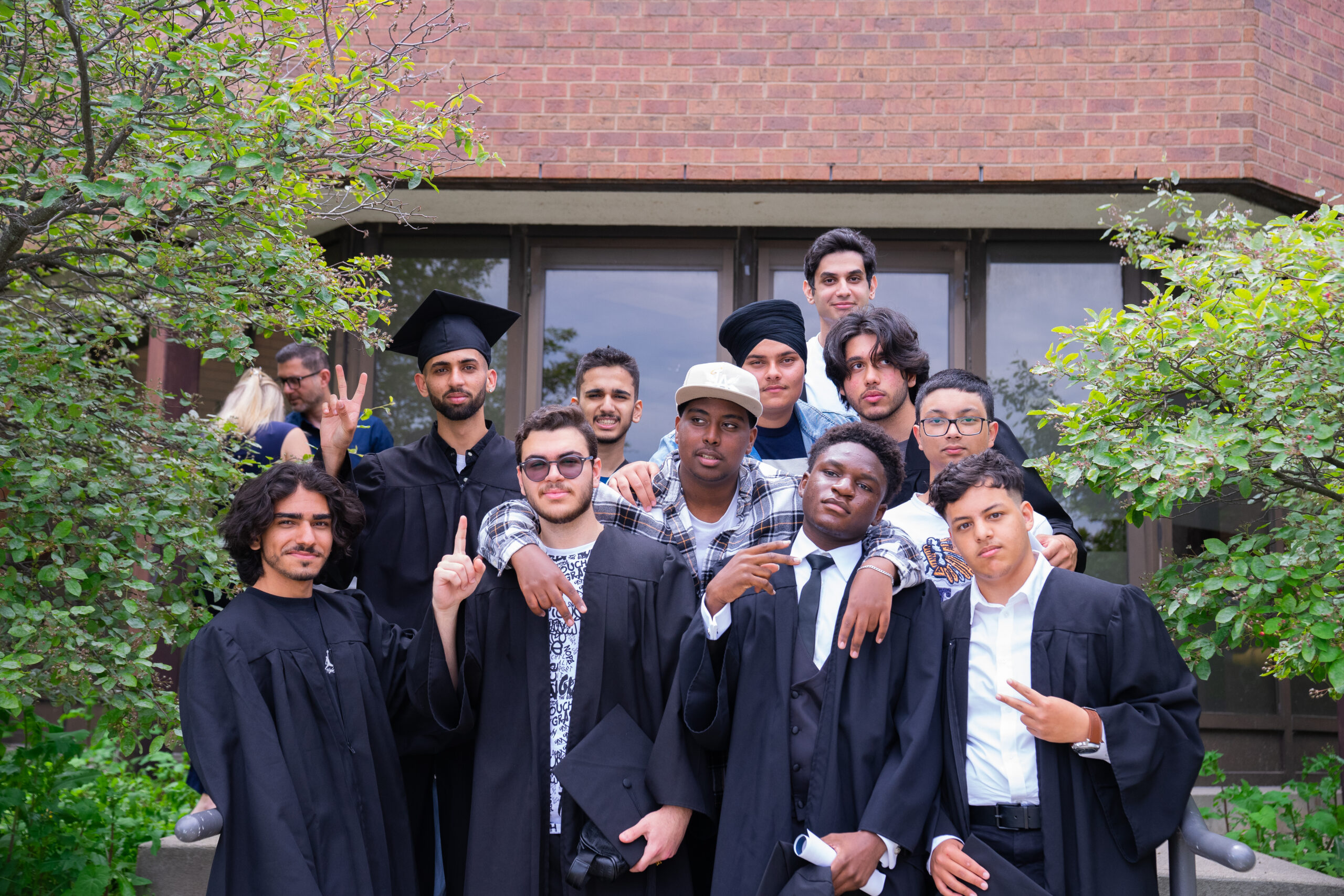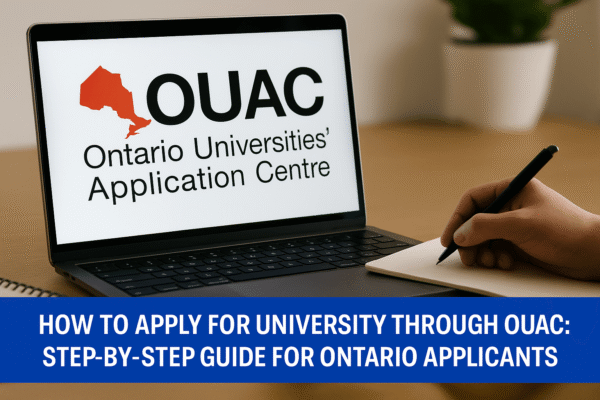Canada’s master’s programs for international students blend academic rigor with cultural diversity. Discover top-ranked masters programs in Canada for international students offering world-class education, research opportunities, and global career prospects. The number of international students in Canada has grown significantly due to since Canada has become one of the most favoured student migration destinations. Master’s programs in Canada for international students have developed significant popularity because of Canadian universities’ renown, multicultural population, and welcoming immigration regulations. The Canadian education system presents opportunities to international students, including two-year programs and financial affordability with IELTS-free admission possibilities. A university preparation course helps students build the academic foundation and study skills required for success in higher education.
PR Pathways Through Canadian Master’s Programs for International Students
Different Canadian universities deliver master’s programs in science to engineering, business, health sciences and arts, and technology disciplines. Canada grants Master’s degrees through taught (course-based) programs, together with research-based programs or by combining these educational types within certain programs. An international school in Canada provides globally recognised curricula and a multicultural environment ideal for students from diverse backgrounds. Canada offers numerous 2-year master’s programs for international students seeking in-depth academic and research experience.
The internationally recognised master’s degrees available in Canada exist across these types:
- Master of Arts (MA)
The MA is a research-intensive, thesis-based degree offered across various disciplines, including education, humanities, and social sciences. Programs like the MA in Educational Studies at the University of British Columbia provide students with the flexibility to focus on areas such as adult learning, educational leadership, or higher education
- Master of Science (MSc)
The MSc is designed to deepen students’ knowledge in scientific and technical fields through a combination of coursework and original research. For instance, the MSc in Computer Science at the University of Toronto emphasises independent research under faculty guidance, preparing students for advanced roles in academia or industry.
- Master of Business Administration (MBA)
The MBA equips students with leadership, analytical, and strategic skills essential for today’s global business environment. Programs like the one at McGill University offer experiential learning opportunities, enabling students to apply theoretical knowledge to real-world business challenges
- Master of Engineering (MEng)
The MEng is a course-based program tailored for professionals aiming to enhance their technical expertise in engineering disciplines. At the University of Windsor, the MEng program allows students to focus on areas such as civil, electrical, or mechanical engineering, providing practical knowledge applicable to industry needs.
- Master of Public Health (MPH)
The MPH program prepares students for leadership roles in public health by providing a comprehensive understanding of health promotion, disease prevention, and health policy. The University of Waterloo’s MPH program emphasises evidence-informed practice and includes training in areas like sociobehavioural health and public health informatics.
Key Benefits of Studying a Master’s Degree in Canada
- After graduation, international students can access the Post-Graduation Work Permit (PGWP) to work in Canada.
- International education organisations position the University of Toronto and McGill as well as UBC at the top levels of global higher education institutions.
- Studying a Canadian master’s degree enables candidates to increase their opportunity to obtain permanent resident status.
- A multicultural environment characterises Canada because of its inclusive approach to diversity.
- Research-oriented students will find Canada a superior study location because it strongly supports research and innovation.
Top Canadian Universities Offering Master’s Programs
2 year masters programs in Canada for international students offer in-depth academic training and greater eligibility for post-graduation work permits. The following list contains Canadian universities which rank among the best options for master’s studies among international students:
University of Toronto
- The available study programs at this institution include MSc in Computer Science and MBA, as well as MPH and MA in Economics.
- The university is well known for outstanding research as well as its worldwide teaching staff.
University of British Columbia (UBC)
- The educational opportunities at this institution include MEng, MBA and MSc in Forestry, together with a master’s in public policy.
- Learning-based research, along with international student support, characterises this institution
McGill University
- Programs: MSc, MA, LLM, MBA
- The institution stands out through its academic achievements and delivers teaching material in both English and French.
University of Alberta
- Students at this university may enrol in MEng and MSc Environmental Sciences, along with MA programs.
- The institution stands out because it provides inexpensive academic fees alongside an outstanding STEM curriculum.
McMaster University
- The university provides three programs, including MPH, together with MSc in Health Sciences and MBA.
- This institution stands out because it delivers both health science programs and business departments.
Admission Requirements for International Students

Many Canadian universities offer master’s programs in Canada for international students without IELTS under certain conditions. Three admission criteria exist at all institutions, which include the following requirements:
- Prospective students need to possess either a 4-year undergraduate degree, which is equivalent to their local educational format.
- Candidates need a minimum GPA of 3.0/4.0 (the actual requirement might vary between programs).
- English Language Proficiency: IELTS/TOEFL scores
- Letters of Recommendation
- Statement of Purpose
- Resume/CV
- Students applying for selected programs like MBA usually need to submit GRE/GMAT test results.
Explore masters programs in Canada for international students without IELTS through institutions that accept alternative English proficiency tests or waivers.
Master’s Programs in Canada for International Students Without IELTS
Several Canadian institutions provide high-quality yet affordable master’s programs in Canada for international students. Foreign students can receive admission to several universities without needing IELTS through these criteria:
- The English language is your medium of instruction at your current institution, where you have already completed at least three years of study.
- You have to take an alternative English language assessment through TOEFL, PTE and Duolingo.
- To receive a waiver, you need to fulfil particular circumstances.
Top universities without mandatory IELTS:
- University of Winnipeg
- Brock University
- Memorial University of Newfoundland
- Carleton University
- Concordia University
Duration and Cost of Master’s Programs in Canada
Many universities provide affordable master’s programs in Canada for international students without compromising on academic quality.The typical duration for Canadian master’s programs lasts one to two years, but this depends on whether students choose course-based or research-based study programs.
Tuition Fees
| Universities | Cost |
| Public Universities | CAD 13,000 – $25,000/year |
| Private Universities | CAD 25,000 – $40,000/year (e.g., MBA) |
Additional Costs
- Living Expenses: CAD 10,000 – $15,000/year
- Health Insurance: Varies by province
Affordable Tuition Options for Master’s Programs in Canada for International Students
Numerous masters in Canada for international students scholarships are available to help reduce tuition costs and support academic success.
Graduates of eligible programs can apply for a Post-Graduation Work Permit (PGWP) to gain valuable Canadian work experience . Did you seek universities in Canada that offer cheap master’s degrees to international degree seekers? Consider these universities:
| University Name | Tution Cost |
| Memorial University of Newfoundland | CAD $3,000–$6,000/year |
| University of Saskatchewan | CAD $6,000 |
| Simon Fraser University | CAD $7,000 – $11,000 per year |
| University of Regina | CAD $8,500 |
| Brandon University | CAD $8,000 – $10,000 |
Master’s in Canada: Scholarships and Funding Opportunities
A Master in Public Health in Canada for international students equips graduates with global health insights and career-ready skills. Completing your studies in Canada can open doors to PR pathways through programs like Express Entry and the Provincial Nominee Program. Global learners can apply for various scholarships to fund their masters in canada for international students scholarships. The nation of Canada provides numerous funding choices for students from abroad who wish to study for a master’s degree. Securing a scholarship to study in Canada can significantly reduce tuition costs and open doors to top-tier education for overseas applicants.
Popular Scholarships:
- Scholarships
- Vanier Canada Graduate Scholarships
- Ontario Graduate Scholarship (OGS)
- University of Toronto International Scholarships
- UBC International Graduate Fellowship
- Trudeau Foundation Scholarships
Departmental scholarships combined with TA and RA positions act as tuition and living cost reimbursements, which universities provide to their students.
Popular Master’s Programs for International Students in Canada
Many institutions offer affordable tuition options, making Canada a budget-friendly destination for quality higher education. Several in-demand high-value programs include:
| Master’s Program | University name |
| Master’s in Public Health (MPH) | McMaster University, University of Waterloo, University of Alberta |
| Master of Computer Science | University of Toronto, UBC, Simon Fraser University |
| Master of Business Administration (MBA) | Rotman in Toronto, together with Desautels at McGill and Sauder at UBC. |
| Master’s in Engineering (MEng) | Mechanical, Civil, Electrical, Environmental |
| Master’s in Data Science/AI | University of Toronto, University of British Columbia (UBC) |
What Are the Best Master’s Programs in Canada for International Students?
Multiple best and career-oriented master’s programs which global learners should consider include:
| Program | University | Career Opportunities |
| MBA | University of Toronto | Finance, Consulting, Entrepreneurship |
| MPH | McMaster University | Public Health Agencies, NGOs |
| MSc in Computer Science | UBC | Software Development, AI, Big Data |
| Master’s in Data Science | University of Alberta | Manufacturing, R&D |
| The University of Waterloo | University of Waterloo | Analytics, Data Science, AI |
| MA in Economics | Queen’s University | Government, Policy, Banking |
Enrolling in these programs creates an opportunity to obtain an excellent education combined with access to job opportunities and Canadian permanent residency.
Conclusion
International college students choose Canada as their preferred country to study for higher education. Overseas applicants who wish to pursue master’s degrees in Canada may find these programs accessible through their diverse selection and flexible entry procedure as well as budget-friendly structure and generous financial aid. Studying in Canada provides global learners with different possibilities to transform their academic and professional aims irrespective of their funding needs or IELTS status. Canada offers diverse and globally recognized master’s programs for international students across fields like engineering, business, healthcare, and technology. Ready to apply? Book a free consultation with our Canadian education experts!
Frequently Asked Questions About Masters Programs for International Students
1. Which master’s degree is valuable in Canada?
Master’s degrees in Canada that offer strong value include Computer Science, along with Public Health and Data Science, and Engineering and Business Administration, because they possess both excellent market demand and promising job opportunities.
2. How much does a Master’s cost for international students in Canada?
International students should expect to pay between CAD 13,000 and $25,000 for their annual educational fees in Canadian universities. Mastering living expenses in Canada demands between CAD 10,000 and CAD 15,000 annually.
3. How many years is are master’s in Canada?
Course-based programs: 12–16 months; thesis-based: 20–24 months
Canadian master’s degree programs typically run between one to two years, yet their length depends on the specific school field, combined with whether they are research-based or traditional courses.
4. Can I get a job in Canada after a Master’s degree?
International students who complete their Master’s degree can obtain Canadian employment opportunities.
Graduates can access the Post-Graduation Work Permit (PGWP), which enables them to find employment throughout different Canadian sectors. Graduates often use their educational degree to advance their path toward Canadian permanent residence.
5. What are the top benefits of studying in Canada?
The main advantages of attending Canadian education institutions constitute one of the principal strengths of studying there.
1. High-quality education
2. Multicultural environment
3. Post-study work opportunities
4. Research-focused learning
5. Safe and welcoming society



